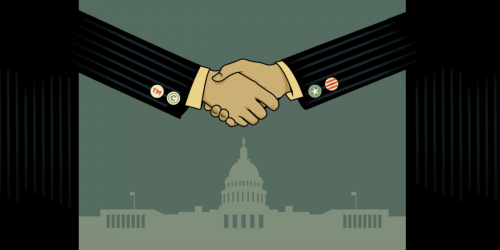The 8th round of negotiations on the controversial Anti-Counterfeiting Trade Agreement wrapped-up in New Zealand last week, with negotiators announcing that the ACTA text will be made public next Wednesday, April 21.
Around the world, those following ACTA have been analyzing the leaked 18 January consolidated text since it surfaced on the Internet last month. The leaked version contained much text in square brackets, indicating that there was significant disagreement between negotiating countries on fundamental issues such as ACTA’s scope. The leaked text also disclosed countries’ negotiating positions. We learnt, for instance, which countries were concerned about Three Strikes (thank you New Zealand and Canada), who wants ACTA to extend to patents, and who is proposing criminal sanctions for inciting, aiding and abetting intellectual property infringement (the EU). By comparison, the official version of ACTA will be released in an "unattributed" form; countries’ negotiating stances will not be included.
The U.S. negotiators had made clear before this negotiating round that release of the ACTA text would be conditional upon progress being made towards agreement on substance. Friday’s joint announcement suggests that occurred:
“Participants had constructive and intensive discussions. They provided a much improved understanding of respective national regimes and how they worked in practice. Based on this understanding, good progress was made toward narrowing existing differences, in the areas of Civil Enforcement, Border Measures, Criminal Enforcement and Special Measures for the Digital Environment. In addition the participants held constructive discussions regarding the scope of intellectual property rights covered in ACTA.”
The official ACTA text released on Wednesday will disclose just how much progress has been made, and on what topics. Two negotiating rounds have taken place since 18 January: the 7th round in Guadalajara, Mexico, from January 26-29 focused on civil enforcement, border measures, and enforcement procedures in the digital environment and transparency, and last week’s round in Wellington, New Zealand, which covered those topics as well as criminal enforcement issues.
The decision to make the ACTA text available for public review is a major turning point. We can now have a serious public debate about the impact of ACTA on citizens’ lives. No more shadow boxing. No more opportunities for negotiating countries to dodge answering hard questions.
The fact that negotiators now feel compelled to make ACTA public is a testament to the dedication and hard work of all the people who have been making the case for transparency since October 2007. We’d like to thank the organizers of PublicACTA and all those who participated in drafting and signing the Wellington Declaration. We also want to remember and thank those parliamentarians and policy makers who have taken the time to understand the concerns raised by ACTA and raised their voices in support of greater transparency: the Members of the European Parliament, some members of the US Congress, the negotiating countries who supported more transparency for the public, and the civil society groups who have worked together across borders to raise awareness about ACTA.
We look forward to analyzing the official ACTA text on Wednesday.
In the meantime, if you're in Europe, we encourage you to call your MEPs' offices in Strasbourg this week and ask them to sign the Written Declaration Opposing ACTA tabled by four Members of the European Parliament - Françoise Castex (FR, S&D), Alexander Alvaro (DE, ALDE), Stavros Lambrinidis (GR, S&D) and Zuzana Roithova (CZ, EPP). More information is available here.
Let the debate begin.






